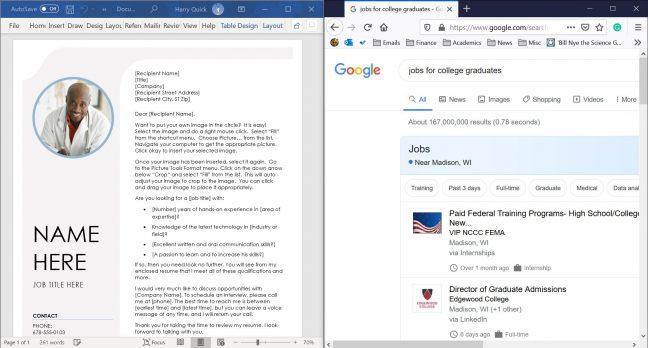Receiving a job offer can be exciting! But reading one can be a bit intimidating. Job offers can be long, consisting of what seems like endless pages filled with complex vocabulary and jargon. Or they can be short, with the new hiree expected to simply learn about these items on day one of the job, when it’s too late to negotiate.
Either way, individuals often focus on just one number — the salary. This figure can be important in weighing job offers, but total compensation is about so much more.
Keep reading to see how exactly to break down a job offer or ask details about it, and to learn some benefits offered by companies.
Salary
Though it shouldn’t be the only factor, as noted above, any conversation on job offers cannot be complete without discussing the salary. First, the number on paper will not be the number received in a paycheck. A portion of the salary will go towards Medicare, Social Security and income taxes — state, federal and possibly city.
The salary figure can mean different things to different people, depending on how much debt they are in, the cost of living in the area they reside, their family obligations and other factors. These are important considerations when deciding if the salary will support a certain lifestyle. It’s essential not to get wrapped up in just the number, but to evaluate the bigger picture.
Insurance
One of the best parts of a job with benefits is the employer helping pay for insurance. Insurance is essential, and many companies will offer employer-sponsored plans for health, dental and vision coverage. This means they either share or fully cover the cost of these for employees and sometimes their immediate families. These rates are much more affordable than if an individual was to seek insurance out on their own in the marketplace. Coverage details and out-of-pocket expenses that will affect total take-home pay should always be assessed — especially for those with recurring health costs. It’s important to evaluate the coverage offered and the costs that come along with it.
Retirement
A retirement package can be another crucial financial benefit in addition to the salary. Saving for retirement can seem far off in the future when accepting an offer, but any help from an employer will boost anyone’s financial future.
Most corporations offer 401(k) or 403(b) plans where employees can automatically contribute a part of their paycheck into different investment vehicles. The type of plan could differ for those working for the government or a nonprofit, but the basic concept of starting to save is the same. There are tax benefits to these accounts and contributions made to them can be deducted from tax returns, lowering gross income.
Many employers offer an incentive program where they will match employee contributions up to a certain percentage. Do not leave this money on the table! It’s part of the compensation that should be taken advantage of. Regardless of the specific package, retirement should be on everyone’s mind when evaluating an offer.
Other Perks
Perks can make any job offer come to life. Though traditional benefits like vacation and paid time off are often very important to employees, the perks may not stop here.
Today’s job market is competitive, and some employers have gotten creative to lure great candidates to their companies. Having opportunities for advancement and being able to grow both professionally and personally should be a priority.
Some companies will provide a housing stipend to subsidize rent. Employers may provide childcare or offer a credit towards its funding. Education credits are also becoming increasingly more available. This could be funding for graduate education or helping employees pay back student loans. In both small and large cities, employees may be eligible to enroll in commuter benefit programs where they can deduct pre-tax money out of their paycheck to pay for public transportation. Some companies will even offer money or incentives for a gym membership to encourage an active lifestyle among employees. Each employer is different based on what the company values. These added bonuses should not be overlooked.
When evaluating any job offer, prospective employees should keep in mind they are investing in the company and the company is investing in you. Read and comprehend all job offers in their entirety, and ask questions if anything is unclear. Happy job searching!
Elizabeth Templeton is a senior majoring in personal finance. She is a peer educator with the Badger$ense Financial Life Skills Program in the School of Human Ecology. Learn about Badger$ense courses, workshops, and other opportunities at sohe.wisc.edu/badgersense.


